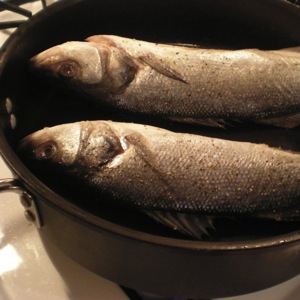 HE HEIGHT OF WEDDING season is upon us. Many church musicians find much to complain about with regard to weddings. These complaints range from overly demanding couples who have not been to mass in years, to fielding requests for secular music. Some of these gripes may be understandable, legitimate, and make our jobs highly stressful.
HE HEIGHT OF WEDDING season is upon us. Many church musicians find much to complain about with regard to weddings. These complaints range from overly demanding couples who have not been to mass in years, to fielding requests for secular music. Some of these gripes may be understandable, legitimate, and make our jobs highly stressful.
But today I propose a change of perspective and attitude. Why? Because we’ve got bigger fish to fry.
Many of us work for years to cultivate and promote professional standards. Weddings often frustrate these designs. But within these challenges also lie opportunity. And here’s the thing: the opportunity may or may not be very gratifying to the musician.
One more newsflash: It’s not our wedding. The organist does not confer the sacrament upon the couple—they do. The couple has bigger fish to fry than to make sure our exquisite taste rules their day.
 HE FIRST THING TO RECOGNIZE IS THIS: a lot of music couples request, appropriate or not, has deep personal significance to them. Additionally, they have not spent years learning an instrument and studying Church documents.
HE FIRST THING TO RECOGNIZE IS THIS: a lot of music couples request, appropriate or not, has deep personal significance to them. Additionally, they have not spent years learning an instrument and studying Church documents.
However, if the piece in question is by Coldplay (a common request) we have a clear-cut problem to address. The smartest thing to do is to acknowledge that this piece may be important to them. The worst thing to do is to ridicule or dismiss their feelings about it. Now you’ve lost them and not just for now, but possibly from the Church entirely.
Respectfully acknowledge their request and you can now begin to address the musical problems of pulling it off on the pipe organ for the processional, no less the theological problem. Do it nicely. Sempre! You have perhaps only one shot at keeping an open dialogue so that they may be receptive to your alternative suggestions.
 ERE’S THE BIG PICTURE AND BIGGEST OPPORTUNITY: Weddings, with all of their challenges offer an important chance to evangelize. Have they insisted upon a setting of “Wherever You Go” that is not to your liking? So what. Take the opportunity to make small talk about the text from the book of Ruth and the Song of Songs (in some cases) and the profound spiritual significance. The book of Ruth evokes great emotion. Even those who rarely go to mass appreciate knowing that you care enough about their music and their wedding.
ERE’S THE BIG PICTURE AND BIGGEST OPPORTUNITY: Weddings, with all of their challenges offer an important chance to evangelize. Have they insisted upon a setting of “Wherever You Go” that is not to your liking? So what. Take the opportunity to make small talk about the text from the book of Ruth and the Song of Songs (in some cases) and the profound spiritual significance. The book of Ruth evokes great emotion. Even those who rarely go to mass appreciate knowing that you care enough about their music and their wedding.
Is a setting of Psalm 118 too cheesy? My heart bleeds for you. Talk about how this is the same responsorial used on Easter Sunday. The connection of the holiest day of the year to their wedding may plant a mustard seed in their hearts to come back to mass.
Folks, we have bigger fish to fry. Be a jerk and they definitely won’t come back. Behave as though you care (and you should) and they will remember you twenty years from now. More importantly, they will remember that those in the Church were welcoming and caring. We need that today more than ever. When they come back, they may have opportunity to hear more reverent and prayerful music. This in turn may help in ways you may never know.

SOME OTHER ADJUSTMENTS OF PERSPECTIVE:
HAVING TROUBLE GETTING THROUGH SEVEN OR EIGHT masses on a weekend and must play Canon in D for the tenth time this month? I may be quite grateful. It’s less stress for me. My fifteen–month old woke us up twice in the middle of the night. I have a lot to prepare for Sunday’s mass and the choir. It’s 83 degrees in the choir loft. I have bigger fish to fry than be personally disappointed by the choice of music.
Did I mention I have tuition to pay for my older two children? Weddings pay. I have bigger fish to fry.
How is the quality of the sacred music at mass on Sunday? Are my choirs engaged, growing, and learning? Is the congregation able to sing and pray with the music we provide on Sunday? Children, families, are touched by our work. So are young men and women who may be getting married someday. We have bigger fish to fry.
Furthermore, how is my relationship with God, my wife, my family, my boss, and my colleagues? If I’m not right with them, I’m going to have difficulty doing my job well. These are very big fish to fry.
Finally, God calls us to be fishers of women and men. That’s the most important catch of all.

Here is the best series of articles on practical advice for weddings by Andrew Motyka. It is also entertaining reading!
Here are some Free Musical Scores For Catholic Weddings.
Here’s the coolest wedding I’ve ever been a part of (aside from my own, of course…)

